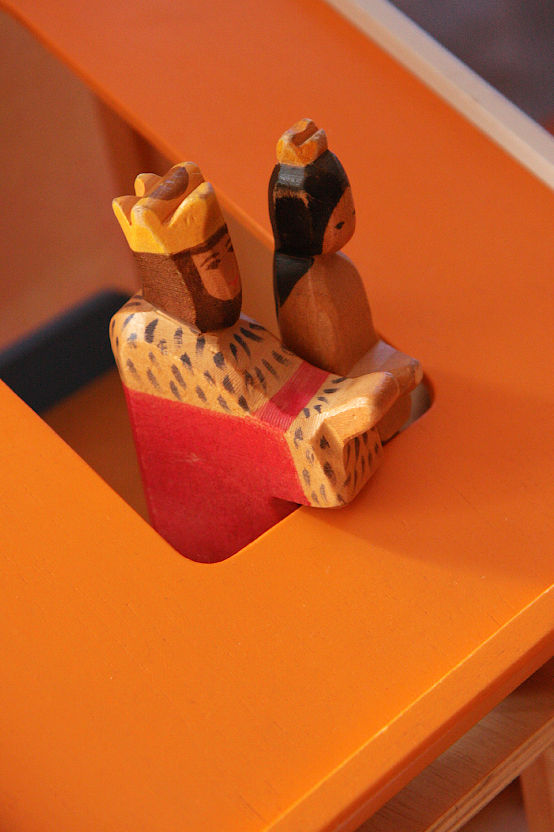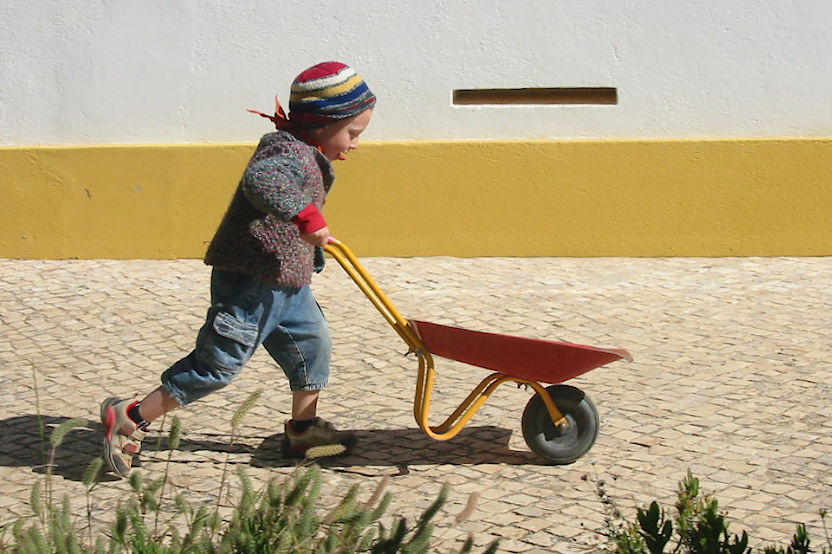(…) we should create an environment more proportioned so that the child learns as we learn, in the way that they need to self-educate by way of their internal destiny.
GA306, Rudolf Steiner
The Waldorf curriculum contemplates all of the previous aspects when it comes to early childhood education, including a wide range of forms such as the cognitive, physical, emotional, aesthetic, social and spiritual dimensions. It centres on the autonomous development of the child and within this is seeks to develop the necessary qualities so that the child can deal with the constant demands and rapid change of life. Mainly, it seeks to awaken the will to act in the world in a way that is evermore conscious, seeks self-understanding and understanding of others, and activates the child’s ideas with creativity, flexibility, responsibility and the capacity to question and connect.

The children at the Kindergarten learn mainly through imitation and imagination is their natural universe. The objective of the Kindergarten is to develop within the child a small sense of admiration and reverence for all of the things in nature and for the qualities of confidence and coherence in human relationships. This creates a framework for academic pursuits and experiences which in turn they will take with them into the first grade.
The human world, the model where the child consumes the quality of Humanity itself, should be able to prepare itself daily to receive the child, feeding the hope and confidence which naturally comes ingrained in the child. The quality that the adult puts on their permanent process of self-learning, of which the results a child will capture and imitate not by what the adult does but by what the adult is, will leave its mark in the evolutionary process of each child.
In Educative Offer – Waldorf Curriculum
All of the activities are tasks which make sense for life and are prepared, developed and created in the necessary environment in such a way that the child feels involved, impelled and developing. They inspire the care of what is ours, the materials and toys and they are developed in a way to be open for artistic imprints, fundamental for the development of the creativity and imagination in the child. The primary task of the adult is to care, nurture and relate what the child will live in a safe, confident and happy way.

In the educative realm it is of enormous importance the way the image of Man is transmitted – as a physical, etheric and spiritual being – seeking a fair relationship between Individuality and the World, between the Individual/Personal Being and the Cultural and Social Being.
The adults surrounding the child are the models to follow. The underlying values that the educator practices and the way in which they complete the daily tasks of the Kindergarten, allow that the early childhood education to be framed in a social and relational context. This facilitates the formation of the personal and the social within the child. By demonstrating attitudes of tolerance, cooperation, sharing, sensibility, respect and justice etc. to both adults and children, the educators contribute to the child’s recognition of the importance of these values and the child then claims them as their own.
Truly understanding oneself is only given to a human being when they develop an affectionate interest for others; true understanding of the world, the human being only reaches when they seek to understand themselves.
Rudolf Steiner